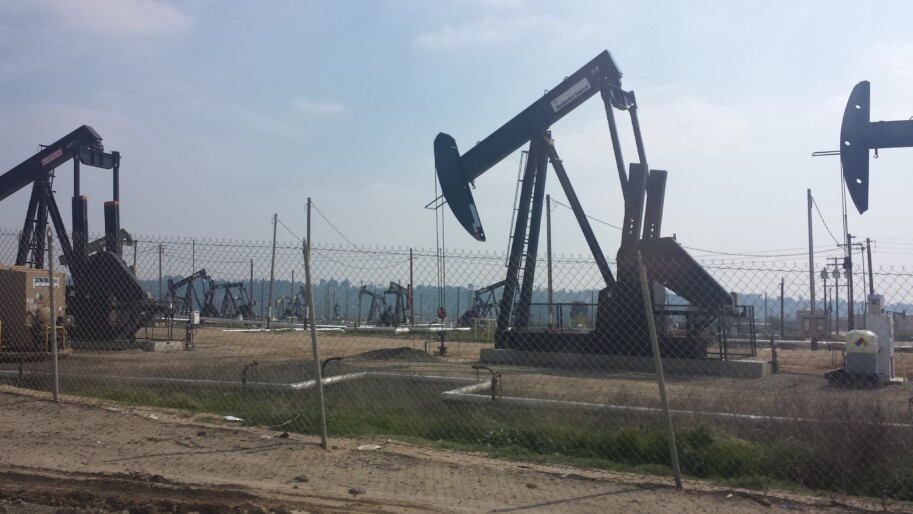Existing law, the California Global Warming Solutions Act of 2006 (Act) establishes the State Air Resources Board (ARB) as the state agency responsible for monitoring and regulating sources emitting greenhouse gases (GHGs). The Act requires the ARB to ensure that statewide GHGs are reduced to at least 40% below the 1990 level by 2030. The Act authorizes the ARB to include the use of market-based compliance mechanisms in its regulation of emissions of GHGs. Existing law requires the ARB to designate a specified market-based compliance mechanism as the rule for petroleum refineries and oil and gas production facilities to achieve their GHG reductions.
The Petroleum Industry Information Reporting Act of 1980 requires each refiner, within 30 days after the end of each monthly reporting period, to submit to the California Energy Commission (CEC) certain information regarding imports of finished petroleum products and blendstocks by type, including the source of those imports, as provided. Existing law requires the CEC to request from destination facilities certain information regarding crude oil transported to or within California via railcar or marine vessel, and to quarterly prepare and make available to the public a report based on that collected information.
This bill would, commencing January 1, 2030, prohibit a petroleum refinery licensed to operate in the State from using oil originally extracted outside the State for more than 60% of the total oil that the refinery processes on an annual basis. Commencing January 1, 2035, the bill would prohibit a petroleum refinery licensed to operate in the State from using oil originally extracted outside the state for more than 50% of the total oil that the refinery processes on an annual basis.
Full bill text and related information.

